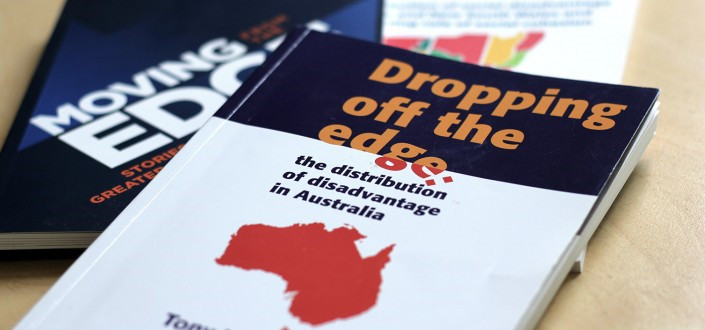The recent Jesuit Social Services study of disadvantage, Dropping off the Edge 2015 has aroused widespread interest in Australia.
Its methodology may be of interest to Jesuits and others working with disadvantaged people in developed nations, where statistical data on employment, education and social services on a regional basis are available. And Jesuits encountering disadvantage in any society will find helpful its reflections on how different aspects of disadvantage are connected and how they blight people’s hopes for a decent human life.
Dropping off the Edge 2015 follows up a similar 2007 study and compares its findings with today. It shows how and where people are disadvantaged, how the disadvantage that hinders them from participating in society can be addressed, and why flexible coordination of programmes is essential.
The study identifies many aspects of disadvantage that can be measured and that hinder people from making their way in life. They cover such things as access to the internet, housing stress, family income, level of education and post-school qualifications, skills, engagement in study or work, readiness for school, eligibility for disability support, unemployment benefits and rent assistance, numeracy and reading at Year 3 and Year 9, child maltreatment, juvenile and criminal convictions, domestic violence, and exposure to prison and mental health services.
Using these criteria the study was able to rank postcodes and regions in Australia in order of disadvantage. It found significantly that most of the postcodes and regions that were identified in 2007 as the most highly disadvantaged remained so in 2015.
One of the most significant features of disadvantage identified by the report is that it is not simply a state in which you live but a process. It is like being trapped in a spider web where, with each movement, you are entangled with other threads. So it is important not to focus simply on each aspect of disadvantage but to examine the connection between them. For example, the effect of dropping out of school will be magnified if your parents are unemployed and you have come under the juvenile justice system. The combination of different aspects of disadvantage has a more deleterious effect than does the sum of the aspects taken singly.
It follows that those who live in areas marked by severe disadvantage will find it difficult to overcome the effects of disadvantage. It also means that projects undertaken in these areas will need to be coordinated so as to address the interlocking aspects of disadvantage, to be sustained for many years, and to engage the local community.
Ultimately disadvantage brings dislocation to all our relationships, with others and with the world, that nurture and give us the skills and confidence to connect with society. To overcome it demands strengthening the web of relationships, particularly in the local community. Unless programmes resource the local community so that it owns what is done within it and takes initiatives to encourage change, growth to connection will not be sustained.
When we reflect on the social reality of disadvantage we can see how destructive is the common practice of governments and media to blame individuals for their failure to study, work and be economically productive. It is like blaming the insect caught in the spider’s web for not freeing itself. It is even more destructive to punish them for the consequences of their disadvantage. They need help and encouragement to escape from the cycle of disadvantage.







